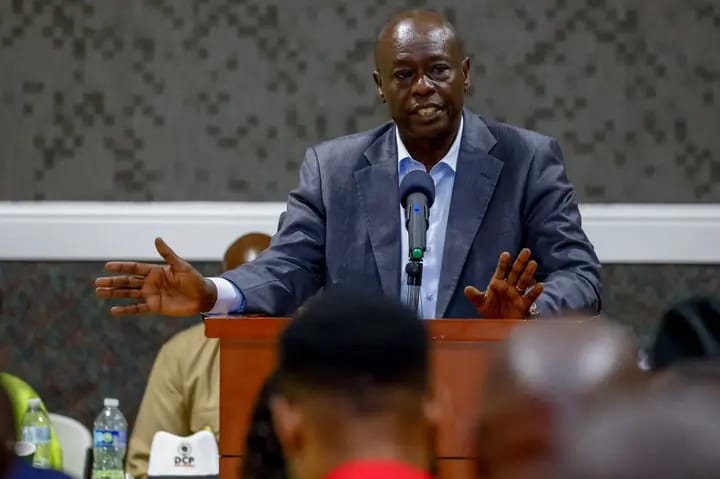Former Deputy President Rigathi Gachagua has strongly denied claims of tribalism, following a bold confrontation by a Kenyan Gen Z during a town hall meeting with the diaspora in the United States. Valentine Wanjiru Githae, representing the youth-led 625 Movement, challenged Gachagua to move beyond ethnic-based politics if he hopes to credibly challenge President William Ruto in the 2027 elections.
“My daughter, please don’t fall into that narrative,” Gachagua responded, dismissing accusations of tribalism as politically motivated propaganda. He claimed President Ruto was behind the narrative to discredit him, stating, “William Ruto is an expert in creating narratives… that Rigathi Gachagua is tribal is a narrative created by William Ruto because there’s nothing else he can say about me.”
Gachagua argued that his support for Ruto, a Kalenjin, in the 2022 presidential elections proves he is not tribal. “If I were tribal, I would have supported a Kikuyu candidate like Mwaura, not Ruto,” he said.
Wanjiru, while acknowledging her own Kikuyu identity, warned Gachagua that emphasizing ethnicity risks undermining national unity. “If we position ourselves as Kikuyu, another tribe will also do that, and before we know it, we are back to the same problem,” she said.
She also criticized Gachagua’s previous remarks in Boston, where he hailed the Kikuyu as the “drivers of the Kenyan economy.” According to Wanjiru, such statements reinforce tribal entitlement and overlook the contributions of other communities.
In response, Gachagua maintained that all Kenyans originate from communities and should not be ashamed of their identity. “Never allow people to make you feel embarrassed about who you are and where you come from,” he said, insisting that he embraces all Kenyan communities.
“I was in Ukambani, Mombasa, Narok, Bungoma, and Kisii. I was warmly welcomed. I work with everyone,” he asserted.
Despite the tension, the encounter underscored the growing political influence of Gen Z and their demand for issue-based leadership, a shift that may significantly reshape Kenya’s political discourse heading into 2027.

